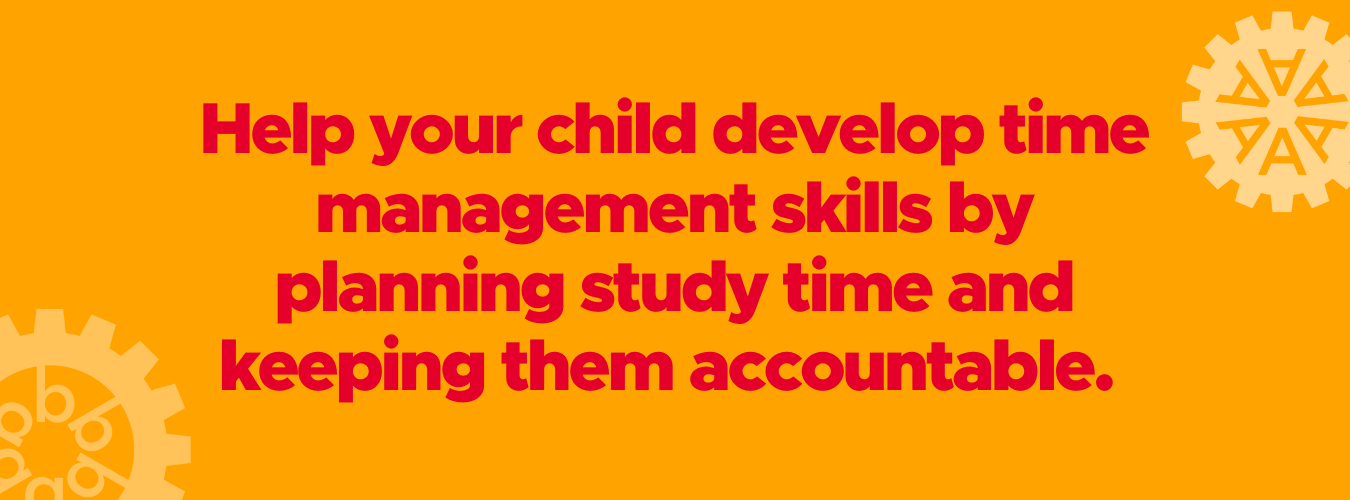How to Develop Good Study Habits

Most parents are keen to help their children develop good habits for life. So here are some tips from a few experts on why good study habits are important and how you can help your child develop them. Positive habits make life easier.
When a habit is engrained, it becomes second nature, and we make it a priority without having to motivate ourselves to complete a task. Establishing good habits early in life sets us up for success down the track, and is a skill that can be applied in all areas of life.
Children are influenced by what they see around them, and what is normalised in their lives, so when parents, teachers and mentors model positive habits, children will follow their lead. Good habits are beneficial in all aspects of life, from what we habitually eat, to how active we are, and how we spend our time.
Instilling positive effective study habits for academic success in children is important for their academic development and helps shape them into active learners. Read on to discover ways to instil the most important points of effective study habits for academic success in young learners.
Is your child struggling to keep up with schoolwork? Are they falling behind? Are they bored in class? Or are you looking for extension work for your child? Check out our eBook to learn more about how we help your child improve academically and build confidence through our in-centre after-school tuition.
What is a Study Habit?
Simply put, it’s something we learn to do automatically, without thinking too much about it. Good study habits include having a regular and realistic routine, deciding what and how to study, using time effectively, and recognizing when help is needed.
It’s important to note that there’s a difference between homework and study. Homework refers to specific tasks set by a child’s teacher or school to be completed in two hours, outside of school hours, while study is more about the independent study periods, time and effort a child puts into lifelong learning to realize their full potential.

The Difference Between Homework and a Study Session
As the name suggests, homework refers to specific tasks that are set by your child’s school to be completed outside school hours. The amount of homework that’s set can range from nothing to several hours a night.
It will depend on your child’s age good grades, and their high school that’s homework policy. The study is less specific; it’s more about the independent time mental energy and effort your child puts into life-long learning to realise their full potential.
As parents, it’s crucial to discuss with your child the reasons for homework and study. Focus on the benefits, rather than seeing it as a chore. Independent study, beyond set homework, is recognized as a valuable and rewarding life skill. It can involve identifying and addressing learning gaps, satisfying curiosity, building confidence, or extending understanding and abilities in areas of particular interest.

The purpose of set homework can be to prepare for or test a topic that’s about to be taught in class, to practice skills and explore concepts that are currently being taught, to test, or to revisit topics taught earlier in class take notes to lock in the learning. Homework can also help a teacher to check how much of class material your child already understands or test whether they have mastered recently taught concepts.
Independent study, beyond set homework, class notes and study groups, is recognised as a valuable and rewarding life skill. It can involve your own words, self-testing and research, identifying and addressing learning gaps, satisfying curiosity, building confidence or extending understanding and abilities in areas of particular interest.
Provide Choices
Experts recommend letting your child make decisions by providing them with choices, rather than instructions. Creating a study timetable is another effective way to establish a routine.
Talk to your school about how much time your child is expected to spend on study group homework, then discuss with your child how much extra time they’d like to put into the study they choose. Allocate regular time slots for homework and study group members, give regular breaks between study sessions, and be realistic about concentration times.
Create a Study Timetable
Planning study time is also critical. Help your child develop time management skills by planning study time and keeping them accountable. Consider using a weekly planner to block out time for studying specific topics and practising skills. Dedicate time each day for study and homework, which will become second nature with practice, and foster strong planning and time management skills.

If your child struggles to stay focused on the task, introduce visual timers so they can see the amount of time that has passed and how much longer they have to work on their task.
Plan Study Sessions
Planning how we spend our time, and managing it accordingly, are useful skills to cultivate early in life. Help your child to develop time management skills, by planning study time and keeping them accountable. To get started, consider using a weekly planner to block out time for studying specific topics and practising skills. The planner might look like focusing on a different task every afternoon or studying different subjects each day for older students.
Dedicating time each day for both study sessions and homework will become second nature to successful students with practice, and can foster strong planning and time management skills. If your child struggles to stay on task or gets distracted and doesn’t complete their work during the allocated study time, you can introduce visual timers so they can see the amount of time or study break that has passed and how much longer they have to work on their task. This will help motivate them to complete their work so they can move on to the next part of the evening.
Create a Distraction-Free Study Space
Creating a distraction-free study space is another essential component of good study habits. Help your child identify distractions and discuss ways to remove them. Having a specific study place with a good-sized surface area, stationery, lighting, and comfortable seating has a positive effect.

Finally, it’s essential to recognize that most students get good grades and instilling good study habits takes time and effort. Be patient and consistent, and celebrate your child’s successes along the way.
Always Use the Time for Something
Even if your child has little value and no homework, to develop the desired habit the allocated time should be used for self-selected, study sessions or having fun together with a focus on reading, writing and maths.
Praise and Reward Effort
Studies have shown that when children are recognised and praised for the effort they put in, rather than what they are ‘good at’, they are much more likely to become confident and high-achieving life-long learners. We published an earlier blog about this approach, which is known as developing a growth mindset.
Model the Desired Behaviours
Finally, try to minimize distractions and ensure your child sees your good study habits in action. You could take a break from class and study effectively bring some work home to do at the same time, tackle some household administration tasks or simply spend the time researching and studying an area of interest. This approach also means you’ll be on hand to help with the next study session if required.

Use a "When-Then Routine"
Study and homework time becomes seamless when it is built into your family’s daily routine. The when-then routine is an easy way to encourage positive habits around studying, homework and school projects. It works by letting your child know that when their homework is complete, then they can play on the iPad/Playstation/trampoline, or when they have practised their spelling words, then they can visit their friend next door.
Setting the afternoon and night routine in this way prevents a good night's sleep and homework from being forgotten, and ensures it is completed before other distractions set in. Another benefit of a weekly schedule, the when-then routine, is that it will motivate your child to be proactive in working on their homework, which means less encouragement by the parent is needed, as they are motivated enough sleep themselves to get their homework done and move on to the next part of their afternoon.
Routines are useful for children, for example, as they help them know what to expect. Making homework part of your child’s daily routine, for example, will encourage them to study effectively and take ownership of their after-school responsibilities.
Set Goals to Use as Motivation
When we set goals, we are motivated to achieve them through focused attention and consistent effort. For this reason, setting goals is a useful tool to build habits for children. To support young learners as they establish strong study habits, it can be beneficial to set goals. With an overarching goal guiding them, their motivation to study and invest time in their school work will improve.

Goal setting can be useful for small and large ambitions, such as passing every spelling test of the year, mastering times tables, or getting an end-of-year award for academic achievement. When a goal has been set, have your child write it down and display it somewhere where they will see it each day.
If their commitment to bad study habits wanes over time, remind them of the goal they set to keep them accountable.
Make Learning Fun
It’s easy to get children on board with studying when it’s fun! There are plenty of ways to make learning enjoyable, regardless of school level. Get creative with hands-on learning, like creating science experiments at home, or working on art projects.

To inspire a greater interest in new subjects, consider a trip to the museum or art gallery, or if possible, travel to visit historical sites and cultural landmarks.
Seeing artifacts and famous artwork may inspire a deep interest in the subjects, which is a natural motivator to study and keep learning. For younger children, try gamifying spelling or times table practice. You can do this by awarding points for every correct spelling word or times table, and then presenting a prize when a certain number of points is reached.
How We Can Help
Forming strong study habits is a valuable skill for every child to learn. To achieve the best academic outcomes for your child, help them instil study habits that will support their learning goals.

If you’re considering after-school tutoring for English or maths, or need help with planning revision and practising exams, come and see us at NumberWorks’nWords.
We offer a free no-obligation assessment and you can try our study techniques in a free lesson with one of two heads of our tutors. Whether you choose to continue with your study and practice exam techniques or not, we’ll discuss the exam results with you and explain how we would address any learning gaps you may have. Book a free assessment today!



